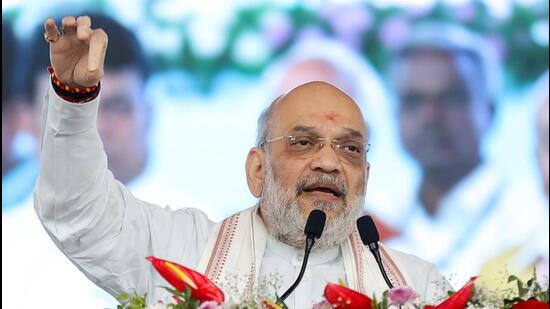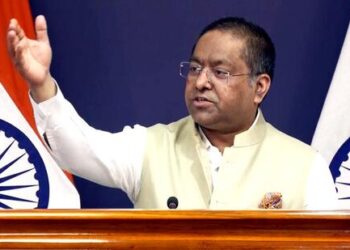Union home and cooperation minister Amit Shah on Saturday laid the foundation stone of the Beej Anusandhan Kendra, a state-of-the-art seed research centre at the Indian Farmers Fertiliser Cooperative Limited (IFFCO) Kalol unit in Gandhinagar, Gujarat. The initiative aims to drive a new wave of agricultural innovation, enhancing seed quality, boosting productivity, and promoting sustainable farming across the country.
Speaking at the golden jubilee celebrations of IFFCO’s parent unit, Shah praised the organisation’s five-decade contribution to Indian agriculture and the cooperative movement. “Earlier, fertilizers were high in cost and low in efficiency. IFFCO has reversed that — making them low-cost and high-efficiency,” he said. The event was also attended by Gujarat chief minister Bhupendra Patel.
Shah credited IFFCO for helping India achieve self-reliance in food grain production and for strengthening the link between fertilizers and the cooperative network. Highlighting its commitment to innovation, he lauded the global reach of IFFCO’s Nano Urea and Nano Di-Ammonium Phosphate (DAP), calling it a transformative step toward sustainable agriculture.
He emphasized that the Beej Anusandhan Kendra will play a vital role in reducing the dependency on chemical fertilizers and water usage while improving crop yield. “This centre will become a turning point for seed innovation and sustainable farming,” he added.
Shah also shared that under Prime Minister Narendra Modi’s leadership, the ministry of cooperation has introduced 62 new initiatives. These include the establishment of Tribhuvan Sahkari University, named after cooperative movement leader Tribhuvan Das Patel, to bring modern cooperative education and AI-driven reforms from the grassroots to apex bodies.
He underlined the government’s focus on digitizing and strengthening primary agricultural credit societies (PACS) and integrating cooperative dairies into the economic ecosystem.
IFFCO currently runs production units across five locations in three states — Kalol, Kandla, Phulpur, Amla, and Paradip — with a total production capacity of 9 million metric tons and an annual sales volume of 11 million metric tons. With a turnover of ₹40,000 crore and a profit of ₹3,200 crore, IFFCO continues to lead India’s cooperative-based fertilizer sector.
Shah concluded by reaffirming the government’s commitment to further empowering the cooperative model for the next 50 years, making it more transparent, tech-integrated, and farmer-focused.








 India
India












